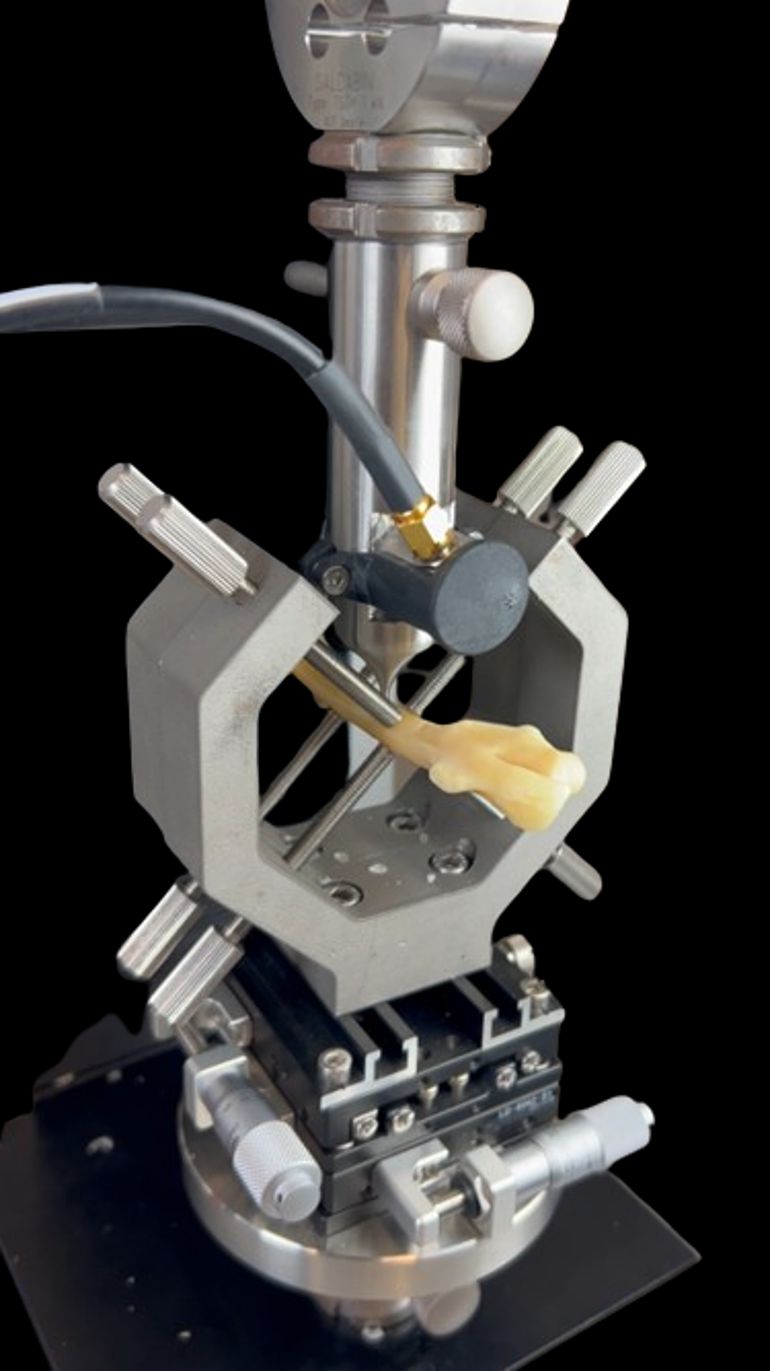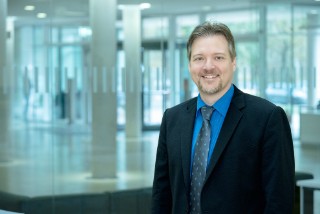Worldwide, over 22.3 million orthopedic procedures are performed annually, with a growth rate of approximately 5 percent. In Germany alone, 378,812 endoprosthetic surgeries were conducted in 2023, with 22 percent of revision procedures attributed to insufficient implant integration into the bone.
A stable anchoring of the implant in the bone, known as osseointegration, is crucial for long-term success. It can be significantly improved through targeted optimization of material, surface structure, and design. Systematic testing of these properties during early development stages is particularly important. A well-established method for assessing osseointegration is the push-out test, where an implant is pressed out of the bone while measuring the applied force. The maximum force required for detachment serves as an indicator of the implant’s stability. However, this method does not adequately reflect the real-life loosening process. In daily use, implants are subjected to varying loads, leading to microscopic cracks that accumulate over time and eventually result in complete loosening.
The OsseoAcoustics project enhances the conventional push-out test by incorporating acoustic emission measurement. This enables the detection of even the smallest defects at the interface between bone and implant. Combining this approach with force measurements allows for a more precise evaluation of osseointegration. Initial proof-of-concept studies have confirmed the feasibility of this method, significantly increasing the amount of information gained from push-out testing. In the long term, this advancement could not only improve patient safety but also reduce costs in implant development.
 Fraunhofer Institute for Toxicology and Experimental Medicine
Fraunhofer Institute for Toxicology and Experimental Medicine
